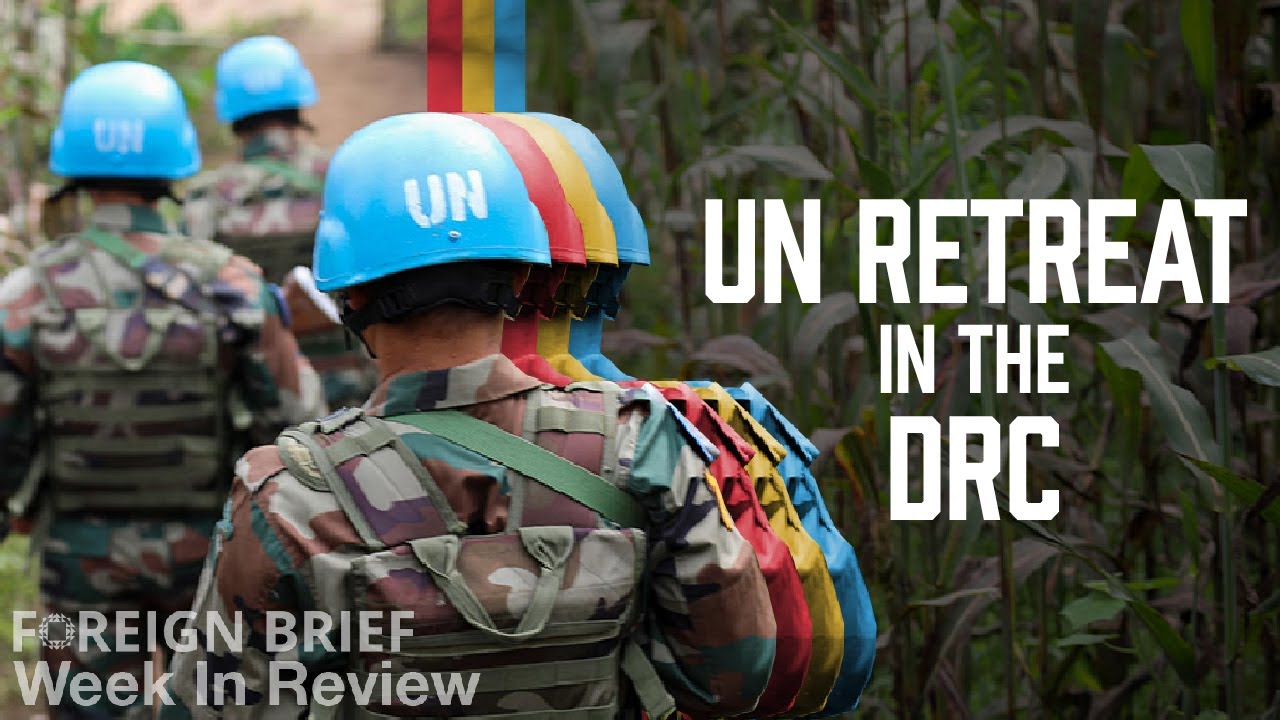Why UN Peacekeepers Fled the Congo

Protests in the Democratic Republic of the Congo drove out a longstanding UN Peacekeeping operation. Find out what forced the UN to abort their mission and how the rebel groups will proceed.
Foreign Brief covers the evacuation of the UN Peacekeeping mission MONUSCO from the DRC. The region has been impacted by rebel groups, namely M23, who have displaced thousands of citizens.
Full transcript
Last Thursday, a UN peacekeeping mission in the Democratic Republic of the Congo, known as MONUSCO, was forced to evacuate from the eastern city of Butembo. The peacekeeping mission was intended to protect civilians from the increasingly violent clashes between government and rebel forces in the city in the past weeks. However, mass demonstrations by civilians frustrated with the peacekeeping troops’ passivity and failure to protect them from the violence drove the UN out instead. Demonstration saw protesters hurl rocks and makeshift explosives at peacekeepers, leading to several deaths. In the nearby city of Goma, a UN peacekeeping base was set on fire and its offices were looted by protesters. What exactly is the conflict in the Congo and what does the UN’s withdrawal mean for its future?
Despite a 2003 peace deal, which stopped the regional war that had been raging for five years between the federal government and rebel forces, violence persists to this day. Various rebel groups still control vast amounts of territory in the east of the country on the borders of Uganda, Rwanda and Burundi. A group known as M23, is one of the strongest and most violent in the region, having killed at least 29 civilians in areas under their control since mid-June. Concerningly, a UN report found that the Rwanda Defence Force had been supporting M23, stemming from local ethnic ties. M23 is Tutsi-led and fights against Hutu groups supported by the Congolese government. The Tutsi-led Rwandan government may wish to see these Hutu groups eradicated due to their links to the militants that perpetrated the Rwandan genocide in the 90s. However, despite photographs having surfaced depicting agents in RDF uniforms at M23 camps, Rwandan President Paul Kagame has repeatedly denied any funding of rebel groups. Clandestine Rwandan support has however, been effective as M23 saw a tripling of their territory since March of this year, displacing over 200,000 people in the process.
While the UN maintains that the pullout of Butembo is temporary, they have yet to provide a timeline on the mission’s return. MONUSCO could maintain a presence in the region, if not in the city itself, as conditions for full withdrawal which include disarming rebel groups and restoring federal government authority have not yet been met. With the drawback of peacekeeping forces and military supplies for mortar and artillery rounds being supplied to rebels. Further violence and greater damage to critical infrastructure may be likely in the coming months as M23 consolidates more power and control over the eastern Congo.
Daniel is the Chief Operating Officer of Foreign brief. He oversees the production and publishing of all of Foreign Brief's products. His background is in the air, space and cyberspace domains of national security and Indo-Pacific geopolitics. He is fluent in Mandarin Chinese.

